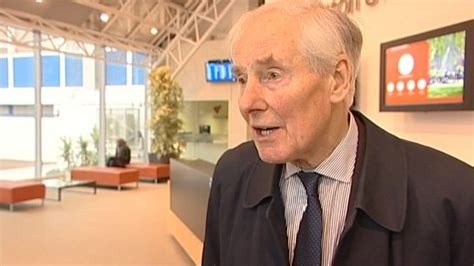A Quote by Eugene Odum
The Pacific coral reef, as a kind of oasis in a desert, can stand as an object lesson for man who must now learn that mutualism between autotrophic and heterotrophic components, and between producers and consumers in the societal realm, coupled with efficient recycling of materials and use of energy, are the keys to maintaining prosperity in a world of limited resources.
Related Quotes
Recycling is more expensive for communities than it needs to be, partly because traditional recycling tries to force materials into more lifetimes than they are designed for - a complicated and messy conversion, and one that itself expends energy and resources. Very few objects of modern consumption were designed with recycling in mind. If the process is truly to save money and materials, products must be designed from the very beginning to be recycled or even "upcycled" - a term we use to describe the return to industrial systems of materials with improved, rather than degraded, quality.
Corporate governance is concerned with holding the balance between economic and social goals and between individual and communal goals. The governance framework is there to encourage the efficient use of resources and equally to require accountability for the stewardship of those resources. The aim is to align as nearly as possible the interests of individuals, corporations and society.
The way to improve productivity is not to bring in experts to talk about inputs - seed, equipment and materials, pesticides or water supply. The way to start is to provide an assured market, a fair price, and a system through which rural producers can market their produce which is reasonably efficient and can transfer to them the maximum share of the consumers' money. If such a structure is erected, the producers will then seek the inputs and materials they need to increase their production and productivity.
Even if nonpolluting power were feasible and abundant, the use of energy on a massive scale acts on society like a drug that is physically harmless but psychically enslaving. A community can choose between Methadone and "cold turkey"-between maintaining its addiction to alien energy and kicking it in painful cramps-but no society can have a population that is hooked on progressively larger numbers of energy slaves and whose members are also autonomously active.
The walls between old allies on either side of the Atlantic cannot stand. The walls between the countries with the most and those with the least cannot stand. The walls between races and tribes; natives and immigrants; Christian and Muslim and Jew cannot stand. These now are the walls we must tear down. We know they have fallen before.
As the run-by-capital society of producers turned since into the run-by-capital society of consumers, I would say that the main, indeed "meta", function of the governments has become now to assure that it is the meetings between commodities and the consumers, and credit issuers and the borrowers, that regularly take place.
Permaculture principles focus on thoughtful designs for small-scale intensive systems which are labor efficient and which use biological resources instead of fossil fuels. Designs stress ecological connections and closed energy and material loops. The core of permaculture is design and the working relationships and connections between all things.
































